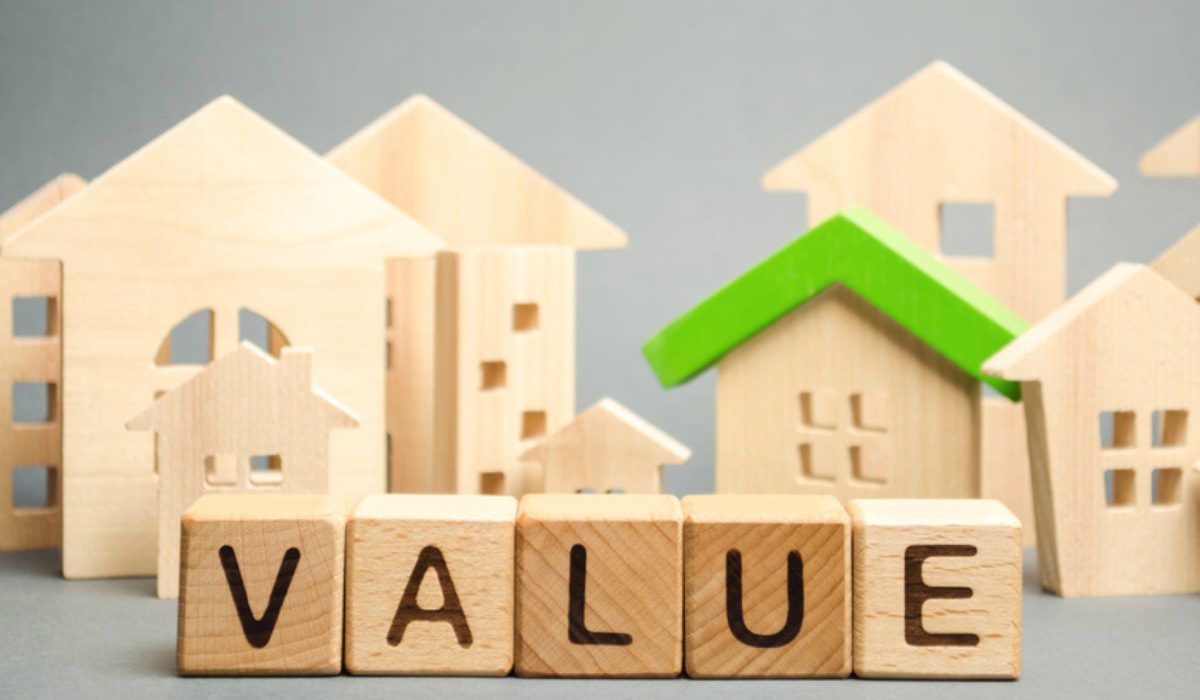Selling a house involves multiple steps, and determining the market value of your house is one of the most important ones. Home sellers usually compare the appreciation value with the purchase price to decide on the selling price. However, this process involves several factors. When estimating the value of a home, it is common for sellers to overlook that the property’s worth is not just based on how much they paid for it or how much they have spent on its renovation. Ultimately, the value of a property is determined by what a willing and able buyer is willing to pay for it in the market. In this article, we will discuss how to calculate the market value of a property.
See also: Fair market value of a property
What factors determine the market value of a house?
Consider the location
Location is one of the most important factors determining a home’s market value. A property in a desirable neighbourhood with good institutions, low crime rates, and access to amenities like shopping, dining, and entertainment is likely to command higher prices than a similar property in a less desirable area. To get an idea of the value of your house, research the sale prices of similar properties in your area.
Determine the size of your house
The size of your house is another important factor that can influence its market value. A larger house with more bedrooms, bathrooms, and living space is likely worth more than a smaller one with fewer amenities. However, it is important to remember that your house’s value is not determined solely by its square footage. Other factors like the layout, design, and quality of construction can also impact its value.
Assess the condition of your house
The condition of your house is another important factor that can influence its value. A well-maintained house with modern amenities and upgrades is likely to be worth more than a house that is outdated or in need of repairs. To get an idea of the condition of your house, consider hiring a professional home inspector who can identify any issues that need to be addressed.
Consider the age of your house
The age of your house is another factor that can impact its market value. Generally, newer houses are worth more than older houses because they require less maintenance and are built to modern standards. However, this is not always the case, as some older houses may have historical or architectural significance that can make them more valuable.
Research the local real estate market
To get a more accurate estimate of the market value of your house, it is important to research the local real estate market. Look at the selling prices of similar properties in your area and the average time it takes for a property to sell. This will give you a better idea of what buyers are willing to pay for a house like yours.
Hire a professional appraiser
If you are still unsure about the value of your house, consider hiring a professional appraiser. An appraiser will evaluate your property based on its location, size, condition, age, and other factors to determine its market value. This can be especially helpful if you plan to sell your house and want to ensure that you price it correctly.
Is the market value of a home different from its fair value?
Understanding the difference between the market value and the fair value of a property is crucial. Simply put, fair value is an estimate of the price a property is expected to fetch based on various factors such as age, location, prevailing price trends, and other relevant factors. On the other hand, market value is the actual price that a buyer and seller agree upon in a transaction. While the factors used to determine both values are similar, the crucial difference is that fair value provides an idea of the property’s potential price. In contrast, market value represents the actual amount for which it is sold.
What are the steps to check the market value of your property?
To determine the market value of your house, it is important to look for similar properties in your neighbourhood or nearby locations that were sold in the last three months. These properties should be comparable in terms of size, style, age, and location. If you have a broker, they can help you with this search. If not, you can research online and analyse your area’s or society’s current listings. Talking to local dealers or neighbours can also give you an idea of the price range for similar properties in your area.
Identify three properties that are identical to your home in terms of age, size, amenities, and style. If you can’t find an exact match, you will need to adjust the sale price. For example, a property similar to yours with extra amenities would be priced higher. Similarly, a property with no car parking would be priced lower. Adjust the sale price of all three comparable properties accordingly.
Once you have compared the properties, adjust the final sale price by adding or subtracting from each amount. If your property is newer, larger, and has additional features, you should add the cost to the final sale price. This complex step requires careful calculations based on various aspects of the property, but it is essential to find the right price for your property.
Add up the adjusted and final sale prices of three comparable properties, then divide the sum by three to get an average adjusted final sale price. This average is your estimated market value.
How to improve the market value of a property for sale?
Preparing your property for sale is crucial for attracting buyers and getting a good deal. Here are some steps you can take to make your property more appealing:
Before listing your house
Enhance the exterior
- Make a great first impression: A new paint job, a tidy lawn, and a clutter-free front yard can make a huge difference.
- Easy access: Clear and light up walkways for a safe, welcoming approach to your home.
- Add greenery: Plant bright flowers, trim bushes, and place potted plants to create a lively entrance.
Improve the Interior
- Clear out clutter:Take out unnecessary items and personal stuff to make your home look bigger.
- Deep clean: Keep walls, floors, and windows clean for a fresh and spotless look.
- Strategic staging: Use rented or borrowed furniture and decor to show off each room’s potential.
- Fix small issues: Repair dripping taps, peeling paint, and broken tiles to show a well-kept home.
- Neutral Colours: Choose light, neutral colours to appeal to more people.
- Update key areas: Make small changes in the kitchen and bathrooms, like new taps or cabinet handles.
Marketing your property
- Professional photos: High-quality images are key for online listings and attracting buyers.
- Write a good description: Use clear language to highlight what makes your home special.
- Smart pricing: Look at similar homes in your area to set a fair and competitive price.
- Effective open houses: Be ready to answer questions, create a pleasant atmosphere with cookies and good lighting.
- Online listing: Use real estate websites and social media to reach more people.
- Get expert advice: Consider hiring a real estate agent for help with pricing, marketing, and negotiations.
FAQs
Why is it important to calculate the market value of my house?
Calculating the market value of your house is important because it helps you determine how much your house is worth in the current real estate market. This information can be useful if you consider selling your house or refinancing your mortgage.
What factors influence the market value of my house?
Several factors affect your house's market value, including location, size, age, condition, features, and local real estate market.
What is a professional appraiser, and how can they help me calculate the market value of my house?
A professional appraiser is an expert who can estimate your house's value based on property inspection and market analysis.
How accurate are online real estate valuation tools?
Online real estate valuation tools can roughly estimate your home's market value, but they may not be as accurate as a professional appraisal. These tools use algorithms and public data to estimate your home's value and may not consider specific features or conditions that could affect the value.
How can I improve the market value of my house?
There are several things you can do to improve the market value of your house, such as making repairs or upgrades to your home, staging your home for sale, and improving your home's curb appeal. You can also work with a real estate agent to determine the best strategies for increasing your home's value.
| Got any questions or point of view on our article? We would love to hear from you. Write to our Editor-in-Chief Jhumur Ghosh at [email protected] |

Khushi Jha, a graduate in history and political science from the University of Delhi, doesn’t restrict herself to a single domain. Her passion for writing has led her to explore a wide spectrum of topics, ranging from fashion, health and lifestyle to technology, real estate and finance. She has written for platforms like TheVoiceOfWoman, Techsunk, Fitmist and Menskool, among others. When free, she enjoys reading books, including fiction, history and geopolitics.











